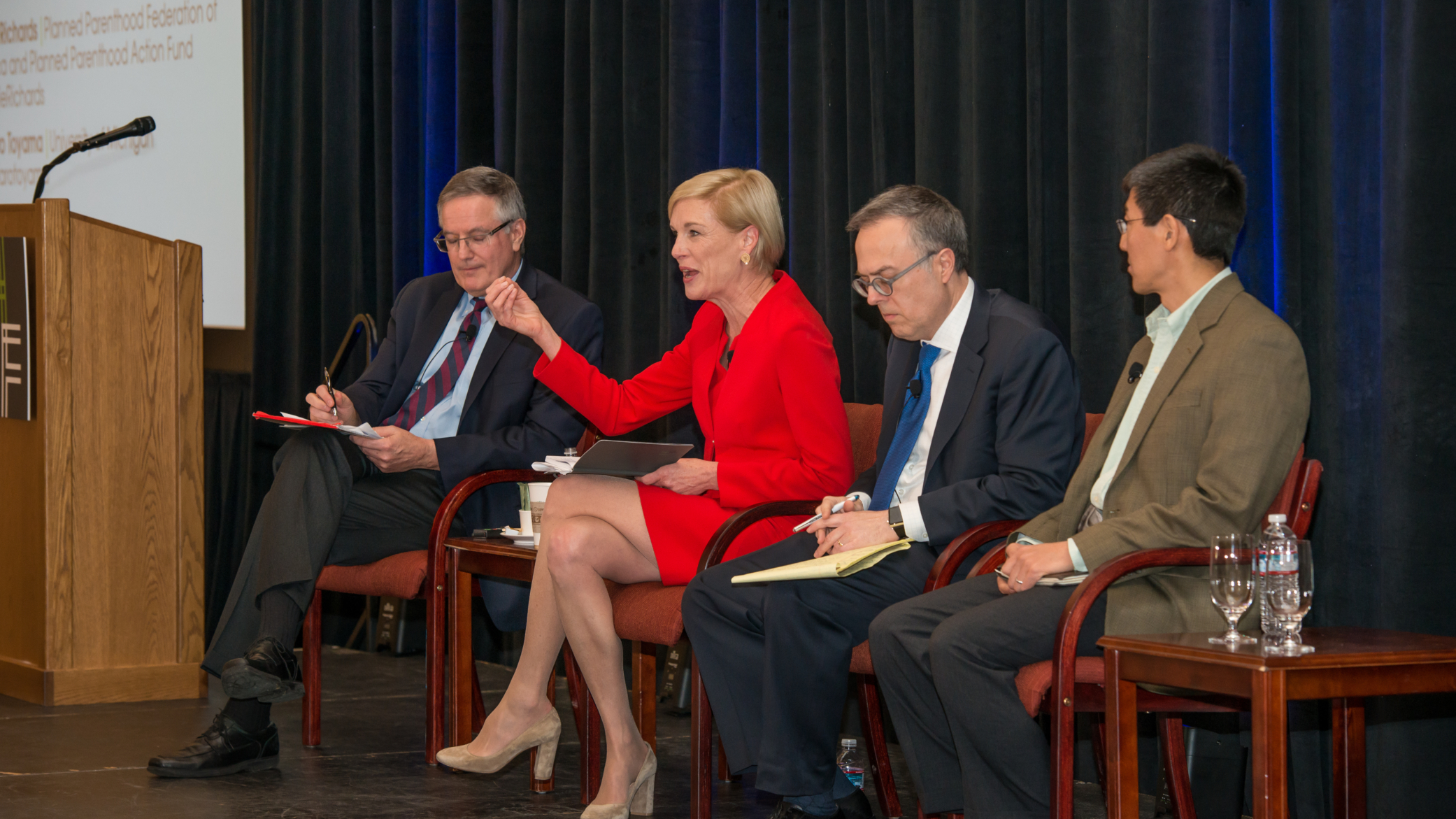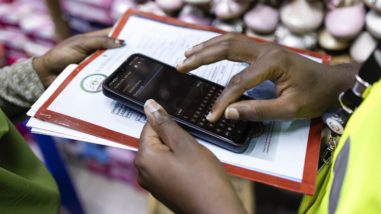Editor’s note: This essay is part of a series of symposium reflections.
Since the presidential election in November, I have been approached often by friends, colleagues, or family members with sentiments along these lines: “I’ve been thinking about you and how difficult the next few years are going to be for reproductive health and rights.” This is because the focus of my work is on maintaining and advancing women’s reproductive freedom.
Anxiety about what will happen to this field of work remains high, especially after President Trump reinstated the Mexico City policy that bans U.S. foreign aid to organizations that discuss abortion with people they serve.
But I keep thinking about a conversation during the Hewlett Foundation’s 50th anniversary symposium last December, in which Cecile Richards, president of Planned Parenthood, reminded us how important it is to focus on the individuals for whom services matter most, and Michael Gerson, former aide to President George W. Bush, reminded us that social movements can create big—and positive—changes.
The symposium conversation was about “Solving for Scale,” or how programs can increase their impact. As an example of how Planned Parenthood is reaching people far beyond its clinics, Richards talked about Planned Parenthood’s new app, Spot On, that helps adolescent girls track periods. She unabashedly used the words “sex” and “period” in a room full of people who likely never hear these words in the context of work.
In doing so, she reminded us of the deeply human and private aspects of people’s lives that her organization helps navigate. And she told stories of real people she hears from every day, like the women who approached her in the airport bathroom the day before to tell her about their own experiences with Planned Parenthood.
When Gerson said “we can’t underestimate the importance of a ‘social moment,’” it struck me as critically related to Richards’ points.
Richards said Planned Parenthood increased its reach by focusing on what matters most — the people who rely on them for services that affect their health, well-being and opportunity. And Gerson explained how social moments help create new programs and policy changes that can help reach even more people, like the U.S. policies and programs launched in 2003 to fight global HIV/AIDS.
I remain hopeful that organizations like Planned Parenthood, who keep the people they serve at the center of their work, and the new social moment we may be facing, will help us find ways to protect and increase women’s reproductive choices.



